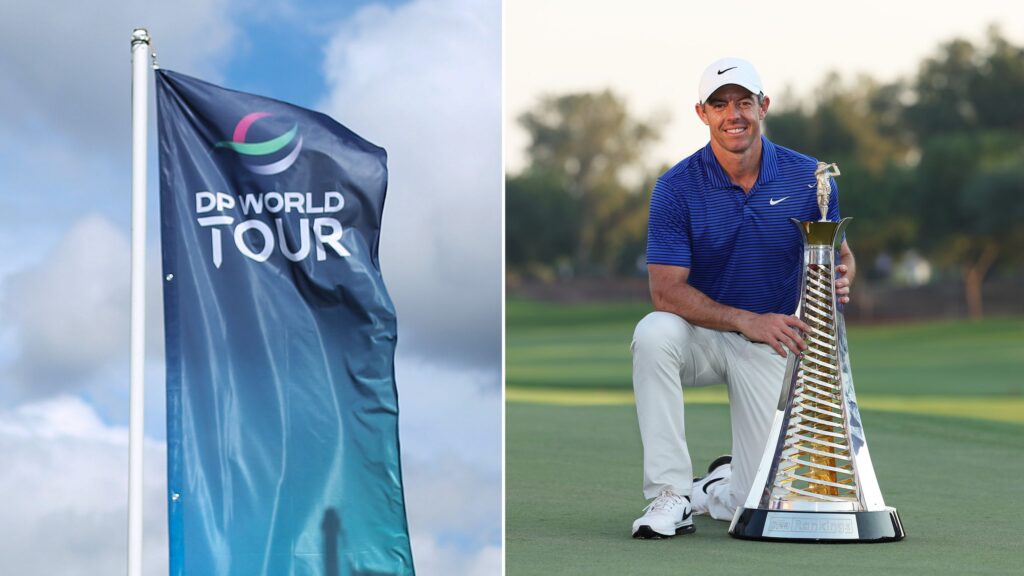Rory McIlroy’s Bid for a Seventh Race To Dubai Title: Evaluating the Current System
Rory McIlroy is making headlines once again as he edges closer to capturing his seventh Race To Dubai title. Remarkably, he is on this path despite participating in considerably fewer events than his competitors, including Marco Penge. This situation raises an important question: Is the current system governing the Race To Dubai truly fit for purpose? In this article, we delve into McIlroy’s impressive journey, evaluate the implications of a skewed event participation, and discuss the broader relevance of the Race To Dubai framework in professional golf.
Rory McIlroy: A Golfing Force
Rory McIlroy has cemented his status as one of the leading figures in professional golf. His ability to dominate tournaments is evidenced by his impressive career statistics, including major championships and numerous wins on various tours. As he approaches his seventh Race To Dubai title, discussions around his exceptional talent and strategic decision-making come to the forefront. Understanding how he manages to compete effectively despite fewer appearances is crucial for gauging his place in golf’s elite.
Marco Penge: A Rising Star
In contrast to McIlroy’s selective participation, Marco Penge represents the new generation of golfers eager to make a mark. Playing a significant number of events, Penge is working diligently to establish himself within the ranks of professional golf. His resilience and commitment highlight the traditional routes taken by up-and-coming players, leading to a dichotomy between those who excel due to raw talent and those who grind through sheer volume of play.
The Race To Dubai Framework
The Race To Dubai is an annual golf competition that culminates in a grand finale, featuring the best players of the European Tour. The ranking system incentivizes performance across multiple events throughout the season, rewarding consistency alongside excellence. However, McIlroy’s pursuit challenges the very fabric of this framework. What does it mean when a player can achieve so much while participating fewer times than his competition?
Analyzing Participation Dynamics
The disparity in event participation raises questions about whether the current point allocation system adequately reflects a golfer’s ability. Should the emphasis remain on the number of events played, or should it pivot toward performance metrics? With McIlroy’s fewer tournaments yielding impressive results, the framework may require a reevaluation. Such a reassessment could impact how both players and fans perceive achievements in the sport.
Performance vs. Participation: The Debate
The discussion surrounding performance versus participation is critical in understanding professional golf’s changing landscape. Traditionally, players were lauded for their commitment and endurance across a grueling season. However, McIlroy’s success prompts a reassessment of these values. Is raw talent increasingly more valued than consistent participation? This analysis is pivotal in envisioning the future of competition and the nature of accolades in golf.
The Impact of Global Events
Additionally, the recent evolution of global events and varying international tournaments significantly influences player participation. Each season features an array of high-profile competitions worldwide, leading players to make strategic choices about where to compete. McIlroy’s selective participation may be part of a broader trend where elite athletes focus on events that maximize both their performance and personal brand.
How Other Sports Handle Similar Issues
A comparison with other sports offers valuable insights. In professional basketball, for instance, players are often assessed based on their performance efficiency rather than the number of games played. If golf were to adopt a similar paradigm, the Race To Dubai’s established structure could undergo significant changes. By learning from these models, golf may better adapt to the evolving landscape of professional sports.
Recommendations for System Improvement
As we consider the future of the Race To Dubai, several recommendations come to mind. First, adopting a performance-based scoring system could balance the scales between participation and success. Additionally, introducing tiered rankings that reward players based on both the quality of competition they face and the number of events attended could enrich the golfer’s journey and recognition.
Conclusion: A Path Forward for Golf
In conclusion, Rory McIlroy’s quest for a seventh Race To Dubai title showcases his exceptional talent and strategic perspective. However, it also raises questions about the adequacy of the current governing system. With the emergence of rising talents like Marco Penge and the changing nature of global tournaments, the need for a re-evaluation is palpable. The landscape of professional golf is shifting, and adapting the Race To Dubai framework may help ensure that both participation and performance are appropriately recognized and rewarded in the years to come. As we anticipate how these discussions will unfold, McIlroy’s journey serves as a compelling focal point for the evolving narrative of golf.


